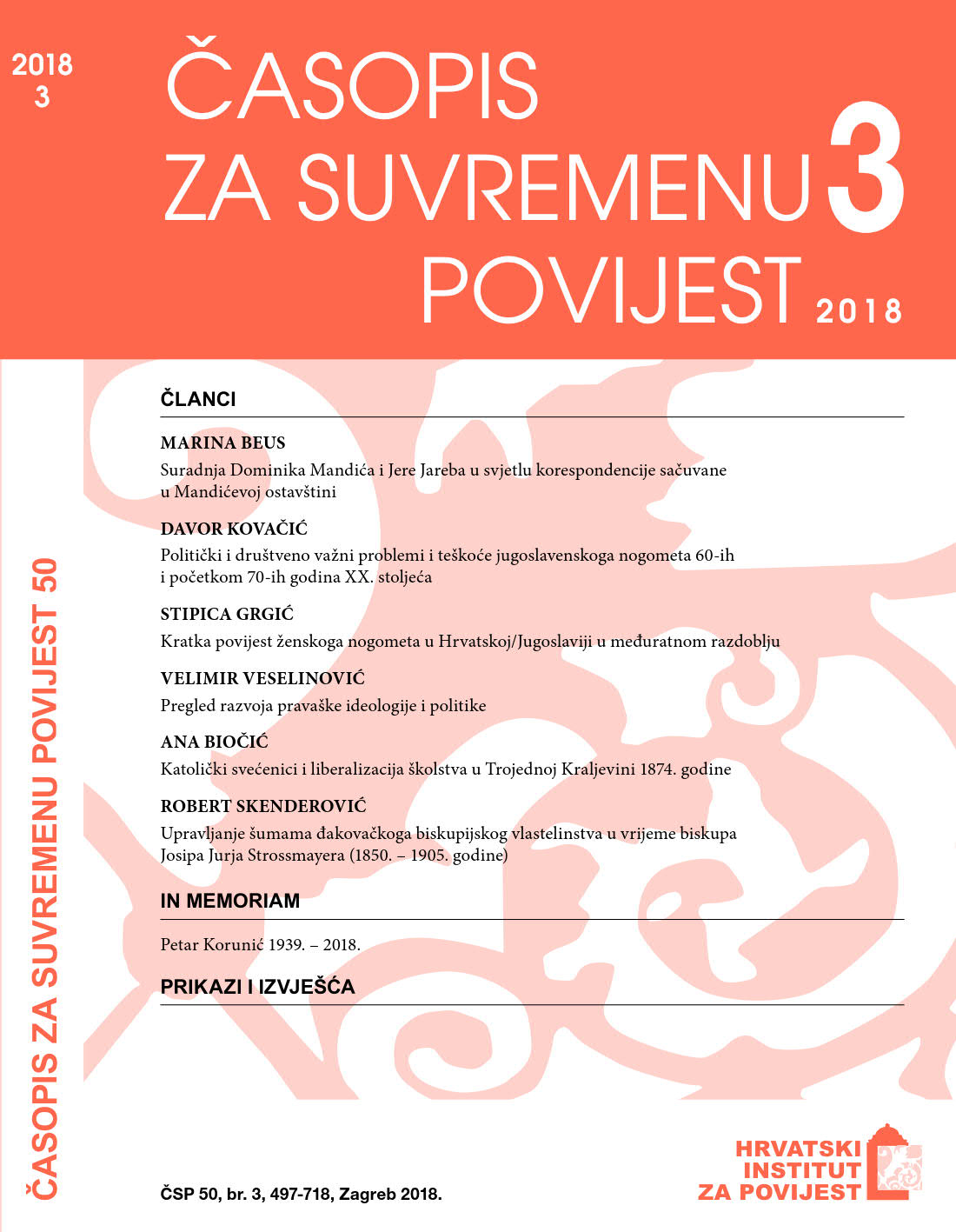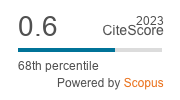A Brief History of Women’s Football in Croatia/Yugoslavia during the Interwar Period
DOI:
https://doi.org/10.22586/csp.v50i3.115Keywords:
Croatia; Kingdom of Yugoslavia; women; football; modernisationAbstract
During the 1920s and 1930s, football became an important activity in the Kingdom of Serbs, Croats and Slovenes (from 1929 the Kingdom of Yugoslavia). Leisure, which became an important factor in the lives of almost every social group of (urban) society, together with limited but adequate finances, can be observed through a sport that attracted thousands to the pitches and tens of thousands to the stands as it became clear that Yugoslavia, and Croatia as its part, were on a slow path towards modernity. By the end of the 1930s, there was a short-lived appearance of women’s football that shows that the modernisation of society had led to attempts to shift this sport towards the female population as well. Despite a good start, i.e. the establishment of several women’s football clubs on the territory of today’s Croatia (their formation occurred nowhere else in Yugoslavia), mixed, often negative or even mocking articles, followed the first female football games, matches in the summer of 1938 that attracted thousands to the stadium stands of the largest Yugoslav cities. In the wake of these games, several female and male functionaries attempted to form a female football federation. Unfortunately, in a largely pre-modern society, in which women still did not have the same civil rights as men, with an intense presence of medical stereotypes about the impact of sports on women and a strong state authority that tried to control all sporting efforts, women’s football was effectively banned by a Ministry of Physical Education’s decree in early 1939. It took several decades to restore the idea of women’s football in Croatia and Yugoslavia.
Downloads
Published
Issue
Section
License
Copyright (c) 2018 authors and journal

This work is licensed under a Creative Commons Attribution-NonCommercial 4.0 International License.
Copyright holders are the publisher Croatian Institute of History and the authors. Journal of Contemporary History is an Open Access journal. Users are allowed to read, download, copy, redistribute, print, search and link to material, and alter, transform, or build upon the material, or use them for any other lawful purpose as long as they attribute the source in an appropriate manner according to the Creative Commons licence CC BY-NC. The papers published in Journal of Contemporary History can be deposited and self-archived in the institutional and thematic repositories providing the link to the journal's web pages and HRČAK. Journal does not charge article processing charges (APC). The editors assume no responsibility for statements of fact or opinion made by contributors.




